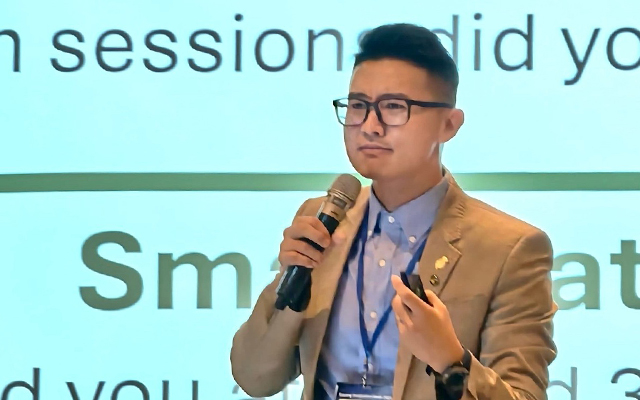While quantitative data is more easily understood and welcomed by number-crunching decision-makers, the dean of School of Hospitality and Tourism, Sunway University has urged business events professionals to include more qualitative information in their data collection if they hoped to make informed decisions on improvements to events and business activations.
Dean Daniel Chong, who led a session at the ICCA Asia Pacific EvolvDestination Forum in Goyang, South Korea on August 21, highlighted “three awful truths” about data.

First, quantity is not equal to quality. While researchers know that “voices” obtained through open-ended questions can provide “powerful” insights, few would collect them, as “certain business stakeholders prefer to see the numbers”.
Second, statistics are impressive and convey the impression of reliability.
“A survey that has collected 2,000 responses will influence people to think that a lot of work was done in the research, and results must therefore be reliable,” Chong explained.
Third, timing of the survey could jeopardise response accuracy. A survey administered at the closing party of a business event may extract more positive post-event feedback, while one calling for responses just as event attendees are about to leave may see higher rejections or rushed and inaccurate feedback.
Theses awful truths, in Chong’s opinion, underscore the greater advantage of collecting “smart data” to guide future events decisions.
Citing examples to differentiate traditional data from smart data, Chong said a question that elicits the former would be phrased: “Which sessions did you attend?” or “Rate how satisfied you are with the conference overall.”
In contrast, a smart data-focused question would read: “We noticed you attended three sessions and skipped two; why?” or “Which event moment was most memorable and why?”
Open-ended questions allow respondents to flesh out their opinions, providing researchers with “insights that are actionable” so that the right improvements can be made to the delegate journey for future events.
When asked what is stopping business event owners and organisers from shifting to smart data collection, Chong pointed to the lack of the right resources. He explained that the questionnaire design must enable the extraction of qualitative information and there must be capable interviewers to analyse responses on the spot and press respondents for more meaningful answers.
Chong acknowledged that chasing smart data is a resource-heavy exercise, and suggested that business event owners and organisers could start with quantitative data and review findings to identify areas they would want more in-depth feedback on.
He also advised business event owners and organisers to accept that good market intelligence comes at a price, and should consider incentivising their target audience to participate meaningfully in surveys and interviews.





















